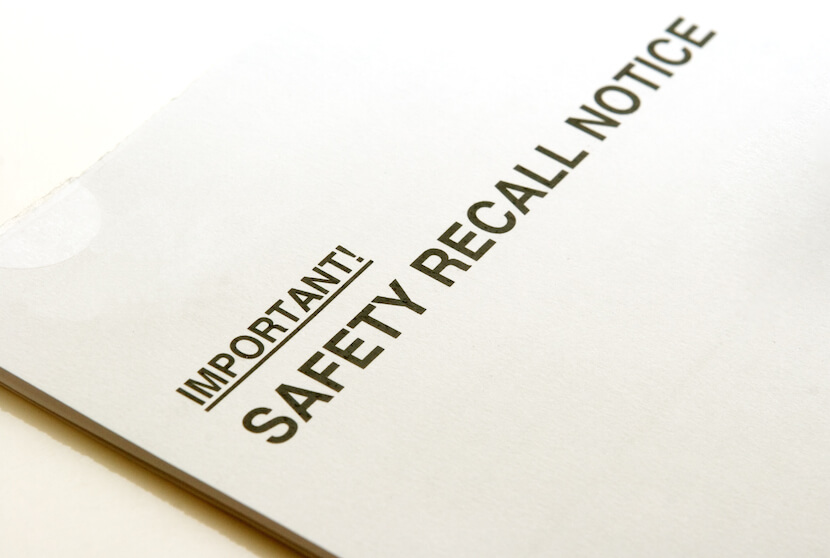Defective Products
Defective Product Liability
 In 1994, a woman suffered third-degree burns on six-percent of her skin after spilling a hot cup of McDonalds coffee in her lap, and because of this, every McDonalds coffee cup now comes with a “Caution: Hot Coffee” warning. Similar to the McDonalds Coffee Incident, product liability refers to a manufacturer (or seller) being held accountable for placing a defective or possibly harmful product into the hands of a consumer. Case laws state that people who are entering the “stream of commerce” can be held strictly liable if the product causes harm. Those entering the “stream of commerce” are generally defined as suppliers, manufacturers, distributors, assemblers of component parts, and others.
In 1994, a woman suffered third-degree burns on six-percent of her skin after spilling a hot cup of McDonalds coffee in her lap, and because of this, every McDonalds coffee cup now comes with a “Caution: Hot Coffee” warning. Similar to the McDonalds Coffee Incident, product liability refers to a manufacturer (or seller) being held accountable for placing a defective or possibly harmful product into the hands of a consumer. Case laws state that people who are entering the “stream of commerce” can be held strictly liable if the product causes harm. Those entering the “stream of commerce” are generally defined as suppliers, manufacturers, distributors, assemblers of component parts, and others.
Whether the products include baby gear, trampolines, furniture, pool and spa chemicals, ATVs, or any other product, there are strict guidelines that businesses need to follow in order to prevent a defective product liability. In fact, because of the sheer scope of product liability, these lawsuits generate the second highest verdict and settlement amounts out of all the areas comprising personal injury law.
However, product liability lawsuits are quite complex, and each case garners its own unique set of circumstances. Although some lawsuits are justified, others can come from individuals using a legal loophole to make quick cash. Fortunately, businesses or people in the “stream of commerce” facing this type of lawsuit can utilize a variety of defenses to protect their business and/or product from unfair or dishonest lawsuits.
Grounds for a Defective Product Liability Suit
Defending a defective product lawsuit can be tiresome and expensive, and the damage awards given to the victim often average around $300,000. A defective product liability lawsuit will arise when the consumer believes that a product led to his or her injury, and in most cases, these lawsuits prevail because the consumer was able to prove that the product was 1.) inherently defective and 2.) the specific defect in the product led to his or her injury.
These two aspects of strict product liability law are essential to a successful lawsuit, and according to Arizona law, plaintiffs must prove that the product was defective at the time it left the hands of the manufacturer or seller, and that this defect rendered the product dangerous. It is important to note that these defects can come from a manufacturing defect, a design defect, or because of a failure to provide adequate warnings regarding the potentially dangerous nature of the product.
Furthermore, plaintiffs must also show that manufacturers were negligent and breached a commercial duty of reasonable care. For example, juries can find that a product was defective but that the retailer was not at fault for creating the defect, which negates liability. Arizona law also states that a manufacturer is not liable when the consumer has made subsequent modifications on the product or used or consumed the product in a manner that was not reasonably foreseeable.
Warranties are also considered in these cases, as a clear and visible warranty prevents consumers from holding a company liable if the defect occurred after the warranty date.
Defending a Product Liability Lawsuit
 Thoroughly knowing product liability laws and understanding why lawsuits prevail in court are essential to comprehensive defective product prevention. After a consumer files a lawsuit claiming personal injury, however, manufacturers (and others in the stream of commerce) often argue that the injury was not caused by the defect. Applicable defenses depend on whether the claim is based on strict products liability or negligence.
Thoroughly knowing product liability laws and understanding why lawsuits prevail in court are essential to comprehensive defective product prevention. After a consumer files a lawsuit claiming personal injury, however, manufacturers (and others in the stream of commerce) often argue that the injury was not caused by the defect. Applicable defenses depend on whether the claim is based on strict products liability or negligence.
For example, the most common (and arguably the strongest) defense regarding defective product claims pertains to the consumer’s assumption of the risk involved with the product. By clearly printing or stating the risks associated with a product, it is generally accepted that the consumer is aware of these risks. Proving the consumer knew of the risks and dangers associated with the product prevents him or her from recovery in courts.
As mentioned earlier, if the consumer has made subsequent modifications to the product and the modifications led to personal injury, the manufacturer is then relieved of liability. However, if manufacturers could have predicted that the product might be used or modified a certain way, they could be held liable.
Arizona law also upholds comparative negligence laws, which states that the consumer’s amount of fault in an injury reduces the compensation he or she could potentially receive. For example, if 40% of a personal injury was the consumer’s fault, his or her final settlement could be reduced by that amount.
Manufacturers, suppliers, retailers, and others who sold a defective product are often held liable for any personal injuries incurred, but that doesn’t always mean that the product caused the injury in question or that the product’s defect was caused by company negligence. However, as product liability cases are one of the most common in the United States, it is important to speak with a personal injury attorney who can help the company preserve its rights.




